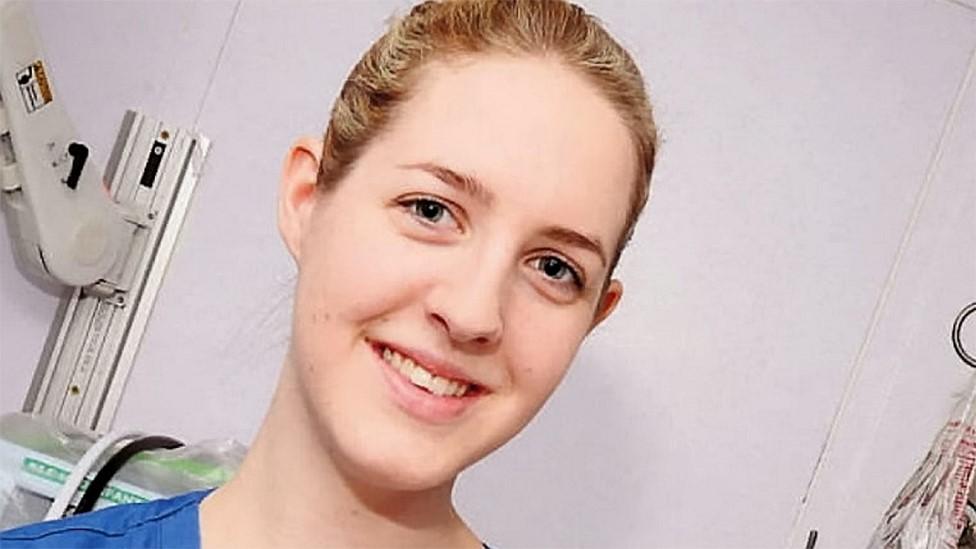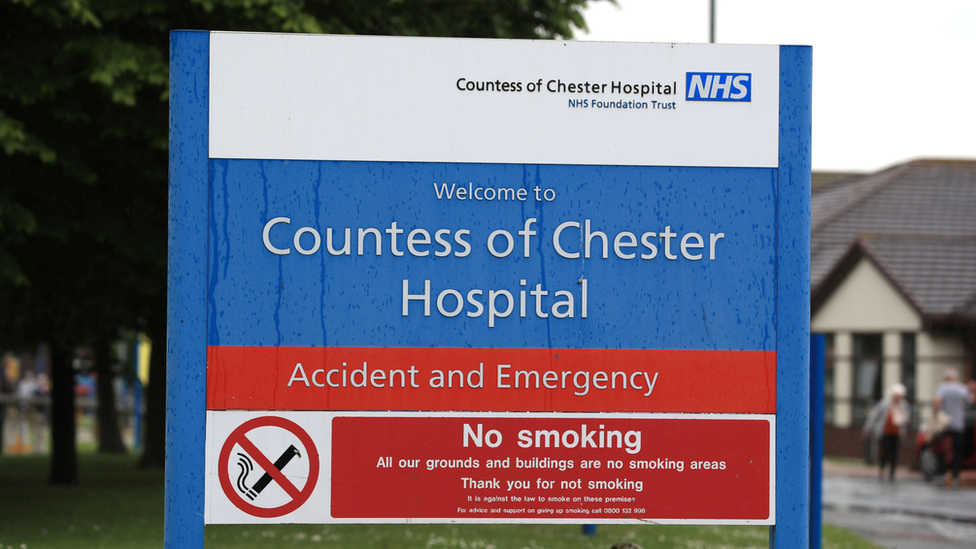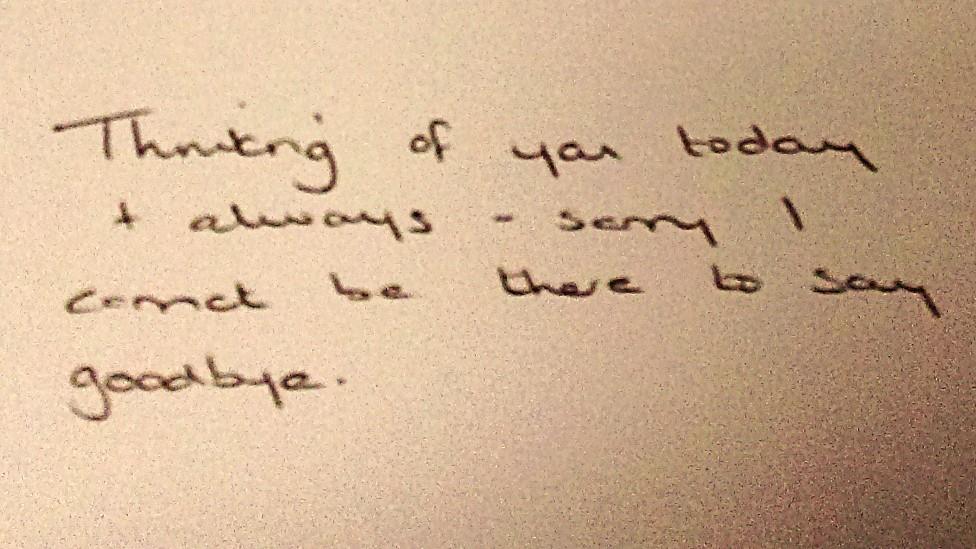Lucy Letby: Dr had 'physical chill' over baby events, trial told
- Published

Lucy Letby is accused of murdering seven babies and trying to kill 10 others
A doctor has told how a "physical chill" went down his spine when he realised someone could be injecting air into babies at the hospital where Lucy Letby is accused of murder.
Dr Ravi Jayaram said he came to the conclusion after "unusual, unexpected and inexplicable" events at Countess of Chester Hospital.
Nurse Lucy Letby is charged with murdering seven babies and attempting to kill 10 others in 2015 and 2016.
The 33-year-old denies 22 charges.
Dr Jayaram, a consultant paediatrician, told her trial at Manchester Crown Court how he and other senior consultants sat down to "work out what's going on here".
Ms Letby, originally of Hereford, is accused of using various methods to harm babies, from injecting air and insulin to feeding them with excessive amounts of milk.
Dr Jayaram said: "As doctors, we operate under certain rules of engagement on a certain playing field.
"I thought could it be infection or sepsis, but this was something different.
"On 29 June 2016, after a number of further unusual, unexpected and inexplicable events on the neonatal unit, the whole consultant body sat down and thought we have to work out what's going on here.
"One of the things that came up in discussion was could this be air embolism, I can't remember who suggested it."
Dr Jayaram said after the meeting he went home and did a searched for literature on the subject, eventually finding a research paper from 1989.
He said: "I remember sitting on my sofa at home with my iPad, researching. I remember the physical chill that went down my spine when I read that, because it fitted with what we were seeing."
Dr Jayaram earlier explained seeing what he believed to be symptoms of air embolism in one of the babies on the neo-natal unit, referred to as Child M.

The death of Child M followed a number of 'unusual, unexpected and inexplicable' events, the court heard
The previously stable baby boy collapsed suddenly at around 16:00 on 9 April 2016 and required 25 minutes of CPR and six doses of adrenaline before he eventually stabilised.
"I couldn't really explain what had caused [his collapse] and why he suddenly got better", Dr Jayaram said.
Dr Jayaram told the court that during CPR he noticed "bright pink blotches" on Child M's torso which "would appear and disappear".
He said once Child M became stable, the blotches "vanished".
Dr Jayaram said he had seen these blotches on another baby in this case, Child A, who died in 2015.
Ms Letby's defence lawyer Ben Myers KC pointed out that Dr Jayaram made no mention of the blotches in his contemporary medical notes recorded on 9 April 2016.
Mr Myers said: "I'm not going to suggest you are incompetent, but suggest it is incompetent missing out a detail like that."
Dr Jayaram disagreed, saying that the notes were "not a priority at the time" as Child M was still recovering and that he had "no anticipation" of the future significance of the blotches.
Mr Myers said: "Details of decolourisation doesn't appear in notes or statements because it is not what you saw, is it?"
Dr Jayaram again rejected the assertion.
Mr Myers went on to claim that Ms Letby had been "a focus of interest" for Dr Jayaram since the death of another child in this case, Child D, in June 2015.
He told the court another senior medic, Dr Stephen Breary, had "flagged" to Dr Jayaram that Ms Letby had been working when a number of infants had collapsed or died in that month.
"All eyes were on Ms Letby then", Mr Myers said.
"Clearly yes", Dr Jayaram said.
Mr Myers said in that case, there is "absolutely no way" he would have failed to record the blotches on Child M.
Dr Jayaram again explained: "I recorded what I felt was relevant."
The trial continues.

Why not follow BBC North West on Facebook, external, Twitter, external and Instagram, external? You can also send story ideas to northwest.newsonline@bbc.co.uk, external
Related topics
- Published21 February 2023

- Published20 February 2023

- Published16 February 2023

- Published15 February 2023

- Published14 February 2023

- Published13 February 2023

- Published10 February 2023

- Published10 February 2023

- Published9 February 2023

- Published2 February 2023

- Published1 February 2023
